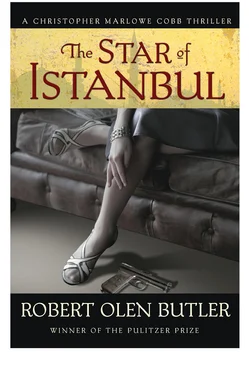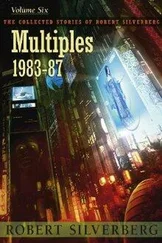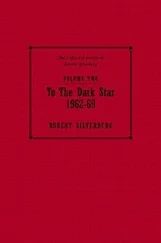The clerk slid my key across the desktop. “One other thing, Mr. Cobb,” he said, and he turned a bit aside and bent beneath the front desk.
He emerged with what I instantly recognized as the leather and wood carrying case of a Corona Number 3.
Purgatory is heaven if you can write about it and hang your byline on it. The rest of the day was clear before me.
“From a Mr. Metcalf,” the clerk said.
“Thanks.” I put the key in my pocket and picked up the typewriter by the case handle. But just as I was about to move away, I finally remembered something about the Waldorf. Something that had niggled at me ever since Metcalf told me where I’d stay. Now it suddenly struck me.
“Pardon me,” I said to the clerk.
“Yessir?”
“I want to check on a friend of mine who was scheduled to come in.”
“What’s the name?”
“Edward Cable,” I said.
The guy’s mustache seemed wired to his column-running forefinger, shifting restlessly from side to side as he scanned his reservation book. But then both finger and mustache stopped abruptly.
He looked up at me. “I’m sorry,” he said, his voice pitched very low. “Mr. Cable’s reservation was canceled this morning by the Cunard Line.”
There was no reason for this to surprise me. He’d have no skills to save himself. Cable had become a mere footnote to this whole affair anyway. And I had long since developed the battlefield skill of taking the death of even somebody you were chummy with — nascent pals with, even — pretty much in stoic stride. But for the first two or three steps I took away from the front desk at the Waldorf, it was all I could do to keep from buckling at the knees.
I did hammer some words from my new Corona 3 through the day, the faux Louis XVI furniture of my room vanishing from my mind, even as the Lusitania filled my foolscap. I was out in the street by five in the afternoon and walking the half mile east along the Strand, St. Paul’s dome the distant reckoning point. I entered the much narrower Fleet Street, with some of the big papers located along here and most all of the rest of London journalism headquartered on the side streets sloping down toward the river. I turned into Whitefriars, which was narrower still, the sky above me strung thick with telegraph wires, and I went in at a fine old sixteenth-century building, which may have watched Sam Johnson pass by. This was the office of the London Daily Transcript, the English-language flagship of Griswold’s international Post-Express syndicate.
None of the dailies in London did a Sunday edition, as odd as that might have sounded to a Chicagoan, but only the working class read the news in Britain on the Sabbath and the advertisers could sell only so many tinned sardines and corn plasters. So the lobby of the Transcript was barely starting to warm back up after a few extra hours of quiet. But I made a stir. I said my name and the young man in the glass reception cage in the lobby jumped up. He’d read some of my stuff over the years, I supposed, loving the war stories, seeing as he was a young man.
I was soon on the top floor with Reginald Bryce, the editor of the Daily Transcript, leaping up from his desk in much the same manner as his boy on the ground floor.
“Mr. Cobb, it’s a superb and coincidental pleasure,” he said, offering a handshake with enough firmness to qualify for a Chicago street corner meeting between a couple of old Rough Rider buddies.
“Our men at the Post-Express like your work a lot,” I said.
“A fine honor. A fine honor indeed.”
“The coincidence?” I asked.
“Your story will rule majestically over our front page tomorrow morning,” he said. “And an excellent thing too, since that was contingent, of course, upon your surviving the Huns’ vile attack.”
“It was vile, wasn’t it,” I said.
“If there’s anything we can do for you.”
“Thanks,” I said, and of course that was why I was standing before him. “Do you have somebody on staff who knows the motion picture business?”
I ended up three floors down, personally delivered by Reginald Bryce to the small but windowed office of Gwendolyn Bryce, the big man’s very own wisp of a searingly green-eyed daughter, a pioneer of British motion picture journalism. She did not jump up from her desk but stayed framed against her twilight gray window. Her handshake was just about as firm as her old man’s.
I sat. The old man left. Gwendolyn, having only repeated my name in greeting so far, instantly said, “Do you know the fate of Selene Bourgani? She was on the ship with you.”
This girl was all reporter. She and her kind would probably have to get the vote first, just for appearance’s sake, but I got the feeling she could replace her dad one day.
“She’s alive,” I said.
“Superb,” she said, flipping open a shorthand notebook on her desktop and taking up a pencil. “How do you know?”
“I saw her in Queenstown. As we were being processed.”
Gwendolyn made a few quick, thin-line Gregg notes, and she would continue to write whenever I spoke, though her eyes always remained on mine. “Do you know how she survived?”
I hesitated only a moment. I didn’t intend to write about Selene. “You’ll not attribute this to me,” I said.
“Of course,” she said.
“You understand I’ll be giving you a scoop,” I said.
Her eyes did not flicker. “I do,” she said, with an ellipsis of reportorial negotiation at the end.
“I’d like some information from you, as well, unattributed.”
“I’ll do what I can,” she said. “I would very much like to know all there is to know about the fate of one of the great stars of motion pictures.”
“I understand she went into the water quite near the last moment,” I said. “In a life jacket. She is a very good swimmer and got clear of the ship. She was picked up by a fishing smack and ended up in the customshouse at Queenstown wearing the fishing captain’s yellow slicker and his sou’wester. She is presently in London, as of early this morning, but I don’t know where.”
Gwendolyn’s shorthanding raced at more than a hundred words a minute, nearly as fast as I spoke, and her eyes went from a jaded “what-have-you-got-for-me” to a giddy “oh-my-stars.”
I stopped speaking. Her hand stopped writing a few moments later.
She asked, rather breathlessly, “Any other details, Mr. Cobb?”
I said, “From beneath her sou’wester, tendrils of her black hair clung to the back of her long, white neck.”
Gwendolyn’s bosom rose with a sharp intake of air and caught and her eyes went almost dreamy, as if she were crazy about me and I’d just told her I loved her and had taken her into my arms.
I smiled at her. “You are made for reporting, aren’t you,” I said.
She let go of her breath and wrote her Gregg symbols with exaggerated slowness as she unfurled — just as slowly — a very sweet smile. “I have not buttered your toast in this conversation, Mr. Cobb, but I do know your reputation and it seems well earned. Thank you for these details. They are golden.”
“I know you’ll put them to good use.”
“And what can I do for you?”
Part of me wished mightily to say “Let me take you away for a drink when your paper goes to bed.” But I didn’t. I couldn’t.
“Details in return, Miss Bryce.”
She put her pencil down.
I said, “Who is Selene Bourgani’s German-director lover?”
Her head did a very faint snap at this. Not the question she expected. I let her know I could read her mind: “Not a war correspondent’s sort of question, I am well aware. But it was you on the Transcript’ s staff I came to see, after all.”
Читать дальше












